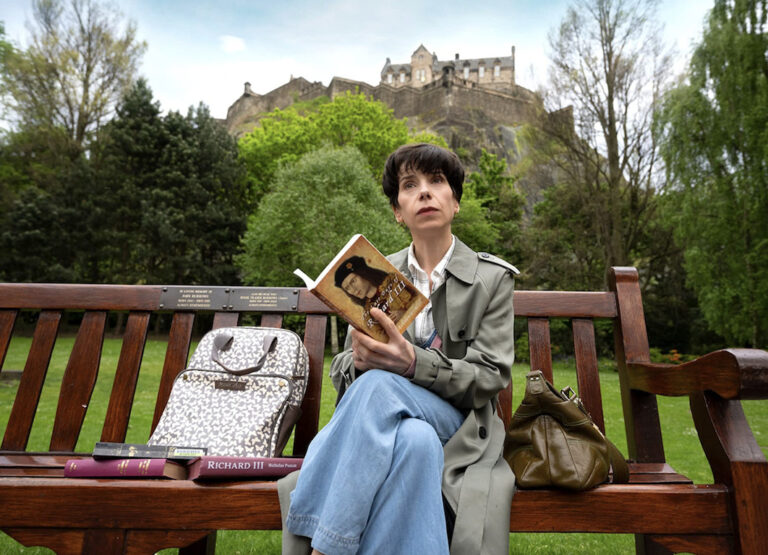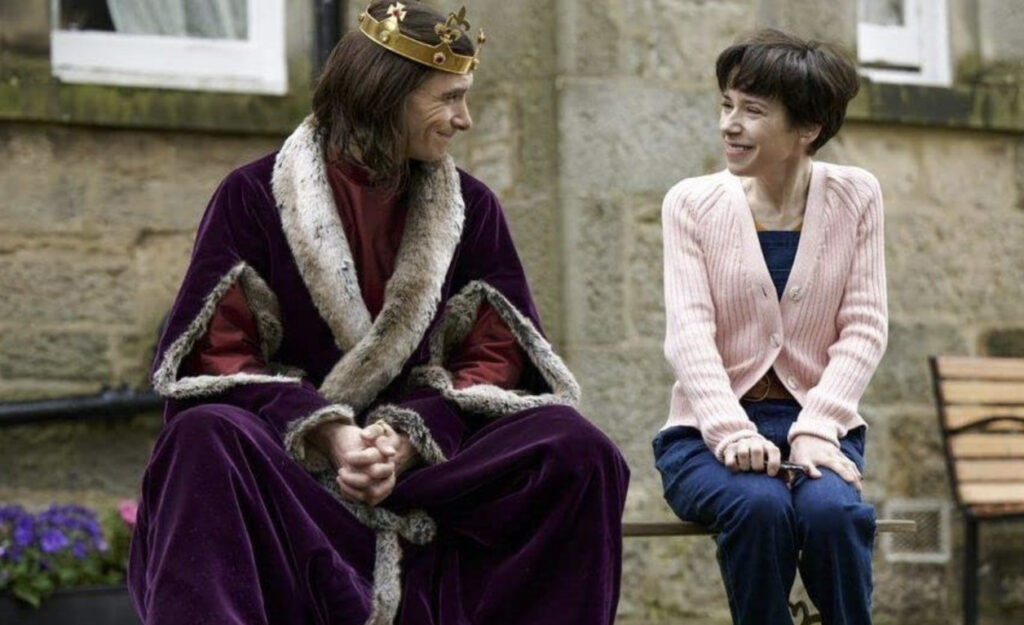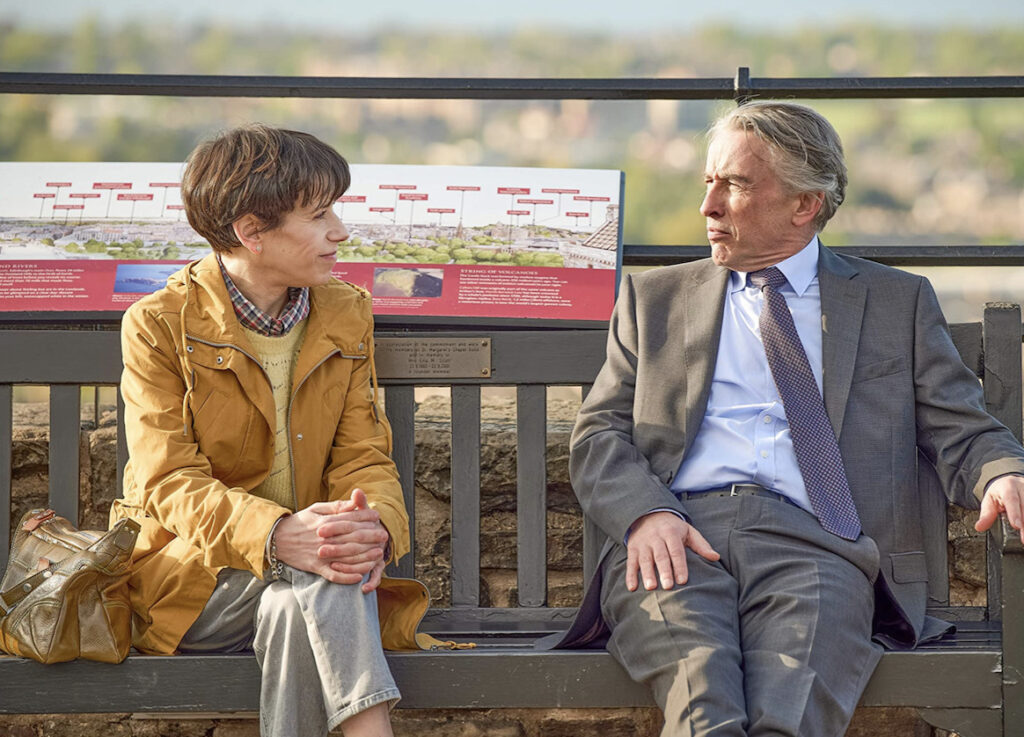
Synopsis : In this inspiring true story, amateur historian Philippa Langley believes she has made the archeological find of the century: the lost burial site of King Richard III. She takes on Britain’s most eminent historians, forcing them to rethink the legacy of one of the most controversial rulers in English history.
- Rating: PG-13 (Brief Suggestive References|Some Strong Language)
- Genre: Comedy, Drama
- Original Language: English
- Director: Stephen Frears
- Producer: Steve Coogan, Christine Langan, Dan Winch, Wendy Griffin
- Writer: Steve Coogan, Jeff Pope
- Release Date (Theaters): Limited
- Release Date (Streaming):
- Runtime:
- Distributor: IFC Films

Exclusive Interview with Co-Writer Jeff Pope
Q: You and Steve [Coogan, co-writer] read Philippa Langley’s two books prior to developing the screenplay. How did you collaborate with Steven, and how much did you talk with Philippa prior to writing the screenplay?
JP: Yes, we spent a lot of time with Philippa, who lives in Edinburgh. We numerous conversations, but there was one particular time when we went and spent three or four days with her. We walked around the city, and we discussed many aspects of the story with her.
And there were lots of other books as well. There was one I particularly remember that was written by John Ashdown-Hill, the late historian [The Last Days of Richard III (and the Fate of His DNA), 2013]. And also books which were written before the discovery of the remains of Richard III, about his life. So that we understood not just Philippa’s story but Richard’s story, too.
Q: There is a documentary as well, right?
JP: Yes, it was broadcast on the UK television, and it was “[Richard III:] The King in the Car Park” [dir. Louise Osmond and Pete Woods, 2013].
Q: Good title. Why do you think that people have such a dim view on Richard III, is it because of Shakespeare’s play?
JP: Yes, it is, yes. He is perhaps one of the most vilified monarchs, certainly in British history. There’s a line in the film which reflects this. One of the most interesting discoveries was the time gap between the death of Richard III and Shakespeare writing his play “Richard III”, and there’s more than a hundred years between those two things happening.
I must admit I’d always felt that Shakespeare — in my head I’m thinking he’s writing a sort of contemporary history, something that’s happened maybe five or ten years ago. But that’s three generations, previously, so that made us reflect on the notion that what Shakespeare was doing was using the Tudor version of Richard’s story rather than necessarily a non-biased version of his story.
Q: Even though Philippa gathered all the funding, the university withdrew the funding with Richard Buckley (played by Mark Addy). Why is the university leading the search or digging? Why was she excluded from the press conferences? Do you think they are afraid of losing credibility if they put Philippa on the podium?
JP: Yes, what happened here is two things. For me, the most significant conclusion I came to with Steve was that Philippa really found the remains of Richard III partially by research and academic study. She looked at what was written in the past. But a huge part of the reason why she found him was her intuition. That whole sequence where she stands in the car park and gets a weird feeling and looks down and sees the painted letter “R” — that all happened. That was a feeling. That was intuition, and the academics are suspicious of this. It’s outside their comfort zone. I think the university was slightly embarrassed that a middle-aged housewife from Edinburgh found him when they couldn’t.

Q: Part of the attraction of this film is the relationship between Philippa and her ex-husband John [played by Steve Coogan]. How did you construct their relationship in the script, as you balance that out with her exploration?
JP: My big thing as a writer is that I tend to gravitate towards stories that are based on actual events, because therein you avoid cliche, because we all behave and speak and express ourselves differently. So what I liked once we dug into this was that there was something interesting and non-cliched about John and Philippa, and it was that they shared their sons, but they were happily divorced. There was a sadness on both their parts that they weren’t together, but yet a realization that it wouldn’t work with them being together. There was no other people involved, there was no bitterness — just a kind of sad realization on both their parts that they weren’t going to spend the rest of their lives together. We felt that was really interesting to reflect that accurately rather than to try and fit it into some kind of pigeonhole.
Q: It is said that history is often written by the winners. During the process of adapting and your research about Richard III, what are the things that most surprised you about Richard III that you didn’t know about?
JP: Well, you’re quite right about history being written by the victors, and in a sense — until this movie came along — the history of how Richard III was found was written by Leicester University more than Philippa.
The thing that really surprised me was the principle in English lore of “innocent until proven guilty” was established by Richard III. So much came from that because you think “That doesn’t sound like a despot”. That doesn’t sound like an evil person — in the modern day, a dictator, effectively. You know, a Stalin or a Hitler; the last thing they wanted was fair trials. Yes, that was the most fascinating thing that we discovered.
Q: In the depiction of Richard III, how much was originally written in the book and how much did you reflect in the film?
JP: Well, we had all the basics from Shakespeare, that Richard was evil, and that he murdered the princes and he murdered his wife and he murdered his brother. But we had to go into it with an open mind, and we had to try and understand Philippa, who had spent many years trying to [unpack] that. So what we did was to go sideways: we challenged it. What were the facts? What independent sources, i.e. non-Tudor sources, are there for events in Richard’s life? We pieced together in our heads a version of Richard’s story which we felt was more balanced.
Q: What do you want the audiences to take way from this wonderful film?
JP: It’s to trust your instincts, to trust your feelings. We’re told in life a lot that we [are to] defer to our betters — our elders, our betters — and that they know best. And sometimes in life, you get a feeling about something and very often that is spot-on, that is accurate.
This is a woman who was ignored, marginalized, pushed to one side, and yet the fact that she found Richard III by just plugging into her instincts and her feelings doesn’t diminish what she achieved. So listen to yourself. And never underestimate middle-aged housewives.
Q: Thank you so much.

Check out more of Nobuhiro’s articles.
Here’s the trailer of the film.

